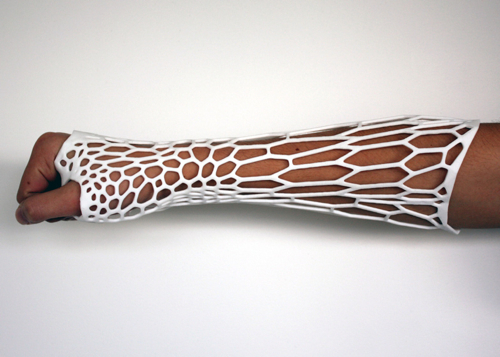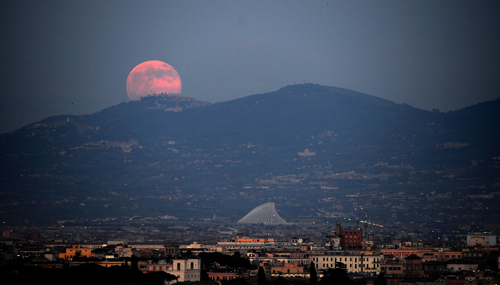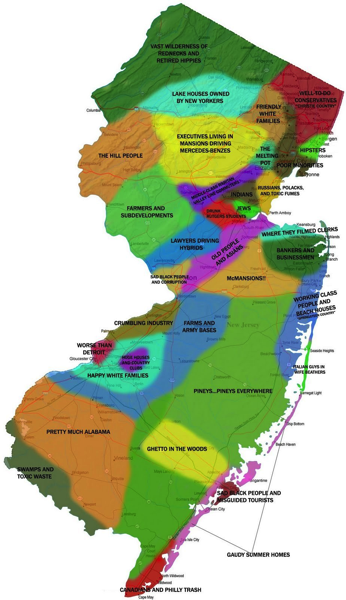I've had a few people ask me lately about buying Apple gear and I figured I'd write up my current thoughts.
First is to know when to buy. Apple doesn't announce schedules and there are probably more rumors for upcoming Apple products than for any other company. Most of them are wrong too. Still, check the Mac Buyer's Guide before buying anything. They track all releases and estimate new releases based on average times between previous releases. If it says "Don't Buy, New Updates Soon" hold off if you can.
iPhone
This is probably the device I use least (I'll always prefer a bigger screen) but it is the one device I assume I'll always have with me. As such, it's where my music and podcasts are (other than my Mac). I do download a lot of apps, but that's now mostly on my iPad. 16GB was a little tight on my last phone so I went with 32GB this time and now I don't have to think about space.
I've had the 3G, the 4 and now have the 5. I upgrade every two years as that's how long my contract is and that seems about right based on compelling new features. For the iPhone 5 these were LTE which is really fast, Siri which I use a fair amount, and a camera upgrade (it's the only camera I use).
I don't use a case but did get a protective film installed all around the iPhone from a kiosk vendor outside the Apple Store. The only problem I had with my iPhone 4 was I got a small scratch on the screen when I accidentally put it in a pocket with my keys. This will prevent that. Installing these films is a little tricky to get all the air bubbles out. It's the kind of thing that takes some practice to do well and doing it once every two years isn't enough. Like sharpening kitchen knives, I'm happy to occasionally pay a professional to do it.
iPad
I had a rule that I don't buy the first generation of new Apple hardware. The second release usually includes a big feature or two and better battery life and performance. It worked well for me on the iPhone and it's worked well with my iPad 2.
I use the iPad at home a lot. It's what I use in the living room, to read in bed, and even a bit in the kitchen. And yes, I use it in the bathroom to read, often finishing an article I started on the Mac (iCloud tabs with Safari are great). It's also the device I take when traveling (along with my iPhone) and it's fine for checking email, reading news, off loading and showing photos, watching a movie on a plane, playing games, etc. Another rule I have is I'm wiling to type a sentence on an iPhone and about a paragraph on the iPad, anything longer and I want a real keyboard. I take it occasionally to lectures or other things where I want to take notes and it works fine for that.
One surprising thing about the iPad, it might be the device I keep longest. I'll probably keep updating my phone every 2 years and I hope to get 3 years out of a computer (though I got 5 out of my last laptop). With the iPad new features have come out and I don't find them compelling. The new retina display is nice, but I don't see that big a difference, and it's warmer, heavier and I think has less battery life. I would like Siri on my iPad as I've gotten used to it on the iPhone, but it's not a big deal. I don't use it as a camera except for video chats, so it's fine for that. I can't really think of a new feature that would compel me to upgrade soon (though I'll be glad to be surprised).
At some point the battery will not keep a charge as long, but Apple uses better batteries than most other manufactures with higher recharge cycle counts (it's one of many little reasons they can get away with charging more money). I've not yet heard of an iPad needing a battery replacement (they do them for $100 I think but I've never heard of anyone needing one yet)
As for options, I maxed out the iPad 2. I got the 3G model (on AT&T) and have used it occasionally. The fact that I can easily subscribe for a month or not makes it handy. I probably use it about the half the time, but it's been 6 months since I've used the 3G. I could now use my iPhone as a wifi hotspot. Since it's Verizon, it's nice knowing I can have data coverage with one or the other service. My iPad is pretty full, but I download a lot of apps (usually when they're on sale which I track with AppZap Pro and AppsGoneFree. I'd list the upgrades in order of importance as get 32GB, then 3G, then 64GB. I do have music on it but feel I could remove it and just use my phone for that. I don't have much video on it but if you want that, it does use a lot of space (consider what you'll watch on a round trip flight).
I got the smart cover with the iPad and think it's brilliant. I have a Ristretto for iPad bag from Tom Bihn and I've been happy with it (though I have the original version and they have a new version now with a zipper in the smaller compartment). It's the only bag I found at the time that was sized for an iPad (I found my laptop bag was way too huge) and yet was big enough to hold a water bottle. It's now my extra carry-on bag on a plane and holds all my chargers and accessories.
There's now a choice of a full sized iPad or an iPad mini. For me, I'll stick with full sized. I'm not commuting with it or carrying it all day so I don't need the portability of an iPad Mini. I have an iPhone if I can't take my iPad somewhere.
The iPad and iPad Mini are the same except for price, size, weight and screen resolution (retina). The full size one does have a faster chip, but that's mostly to drive the screen and I doubt I'd ever notice that difference (The Mini has the same chip as my iPad 2). The mini-uses a smaller SIM card for cellular but I doubt I'd ever change it unless I travel overseas and buy a SIM card to use there. The networking, cameras, cellular services, memory options, Siri, everything else is the same.
Shortly after it came out there were a lot of reviews that people loved the size of the mini. Given my use, I'm not interested in the extra portability. It's easier to type in portrait on the mini but harder to type in landscape. I'm a touch typist so I really want a big keyboard and use landscape as much as I can. I'm happy with a full sized iPad and an iPhone for portability. In fact I'd like a slightly bigger iPad for two reasons. Now it's just a little smaller than standard comics and it would be great to have a full sized page rendered on it in actual size (magazines too) and yeah a retina display would be nice for this. Second, if it was a little taller then a full sized keyboard could fit on the screen or on the cover. The Microsoft Surface Touch Cover is very clever, but it's still not a full sized keyboard so I'm still willing to just type a paragraph on it (I've tried it briefly in a store).
So given that I have an iPhone, I like pairing it with a full sized iPad and I expect to keep it for a while. The only new feature I'd really like is a slightly larger model which could show a full comic page at readable size and have a full sized keyboard onscreen or on a cover. In addition I have a Kindle.
I do think a Mini is great for kids. Also, it's cheaper than a full sized iPad. Apple still sells my iPad, the iPad 2 though only the 16GB version. It's only $100 less than the retina one, and I think Siri might be worth it. You also get a better camera but I don't take photos with the iPad (maybe I would with a better camera but I think the iPhone is much easier to hold).
As for other tablets, I'll say that every non-geek I know that got an android device (or a Kindle Fire) has eventually replaced it with an iPad and has been happier.
Update: I might modify my thought that I'll keep the iPad 2 for a while. Now that I've installed iOS 7 I could see upgrading to the iPad 5 or 6. A faster processor would be nice and the graphics in iOS 7 would certainly look better on a retina display. Probably not related to iOS 7 but to my continued use of the iPhone 5, I'd like Siri on my iPad too. I'm still relatively new to iOS 7 but I'm finding battery life to be less on my iPhone 5 and Ars says it's the same for the iPad 2, so a bigger battery would be nice as well. I'm hoping the iPad 5 is back to the weight of an iPad 2 or less. I'm not running out to upgrade, but I'm also no longer expecting to hold onto the iPad for a really long time.
Kindle
My Kindle 4 is about an inch shorter and half an inch narrower than an iPad Mini. It also weighs about half as much and cost under $100, compared to $329-$659 for a mini. The battery lasts a month and more importantly it's readable in the sunlight. I take it to the beach, where I wouldn't take an iPad (though I do take my iPhone). I will also take it to a coffee shop or around town to have a book (or several) to read. I could use the Kindle app on the iPhone but find the app renders text poorly (there's no reason for it not be as pretty as Instapaper) and I prefer reading on the bigger Kindle screen.
Mac
I used to say that for most people a laptop provided all the power you need and the portability was really nice. The big exception was for gamers who often need better graphic cards. I had a laptop and connected to it an external monitor and keyboard when at home. Worked great. Then I wanted to play some games (specifically Diablo III) and I got an iPad which handles all my portable needs. I had my laptop for five years and it's 200GB hard drive got filled up. My music collection didn't grow so much and I didn't start taking many more pictures and I didn't get into video. A big addition was syncing my iPad and iPhone and all the space that apps took up (70GB now). I also started using reading glasses and I really appreciate a big screen.
In April I bought a 27" iMac and I've been very happy with it. I kept using my old wired keyboard and ordered the iMac with a wireless keyboard. I've connected it to my iPad and it worked in testing though I haven't had a real need for yet it. I did get a sleeve for it and it lives in my Ristretto.
I was going to get an external Thunderbolt drive for Time Machine backups but they're a bit expensive. Instead I got a LaCie 2TB USB 3.0 drive and have been happy with it.
Shortly after getting the iMac I realized another difference between it and a laptop one night, there's no battery. Obvious huh, but when I had a brief power fail, my iMac crashed. So I learned about UPS's, uninterruptible power supplies. I knew they were power adaptors with a battery in them, I didn't realize they had USB ports and connected to the computer so that the computer could know when it's on battery and could do an orderly shutdown. That's all I wanted, I didn't need to run the computer on battery for any length of time (I wouldn't have the Internet anyway), I just didn't want the disk damaged in a crash (and I don't know if fusion drives behave any differently in such circumstances).
I also learned that most cheap (under $100) UPSs output square waves for their a/c power. This is fine except when it's not. Stereo equipment can output a hum with poor power. Also it turns out that new eco-friendly power supplies in computers really want clean sine waves for their power. When looking at APC UPSs (the leading manufacturer) that jumped the price to $300-400. Instead I went with one from CyberPower for $170. I got the 1350VA one because it had 2 extra USB ports on the front and I thought I could power my iPhone and iPad off them. I was now giving up an extra USB port in the back of the iMac. Turns out those don't seem to work on my unit and I'm deciding if I should return it. They don't have enough power for an iPad anyway, and I'm doing ok using the two ports on the wired keyboard. I might get a USB hub and be done with it.
The iMac comes with 8GB of RAM and to upgrade it to 32GB Apple charges $600. On the other hand, 32GB from Crucial is just $250 and I had planned to do that, but so far 8GB has been fine. That might change if I start programming with Xcode.
AppleCare
Apple's extended warranty policy is known as AppleCare. You can get it for macs and iOS devices and the cost varies.
For a Mac AppleCare extends the warranty from 1 year to 3 and phone support from 90 days to 3 years. For my iMac it was $169 and I think it's great deal (particularly when combined with the easy access to a genius bar in a nearby Apple Store). In the past they've replaced my Time Capsule, given me new laptop batteries and helped me work through a few issues.
For an iPhone it's $99 and ups the warranty from 1 year to 2 and phone support from 90 days to 2 years. It also adds up to two incidents of accidental damage coverage, each subject to a $49 service fee. My sense is, for a device I plan to replace every 2 years, I'll risk it. I've been careful with my phones and haven't had a problem.
The prices and coverage for the iPad is the same as the iPhone. I haven't gotten AppleCare for my iPad but I think it's a toss up.
















